11th annual ACM/ SIGGRAPH conference on Motion, Interaction and Games
The deadline for the ACM/SIGGRAPH conference on Motion, Interaction, and Games (MIG 2018) has been extended by a week. The new submission deadline is July 16 (23:59 AoE timezone).
The 11th annual ACM/SIGGRAPH conference on Motion, Interaction and Games (MIG 2018, formerly Motion in Games) will take place in Limassol, Cyprus from November 8-10, 2018. MIG is sponsored by ACM and held in cooperation with Eurographics.
This year’s MIG will feature a half day Machine Learning workshop led by Daniel Holden (Ubisoft), and Jungdam Won (Seoul National University)! Both researchers have used ML to make great contributions to the field of character animation. This workshop is designed to show attendees how they can start to use ML in their own research. More info about the workshop is available here: http://cyprusconferences.org/mig2018/workshops/ .
Motion plays a crucial role in interactive applications, such as VR, AR, and video games. Characters move around, objects are manipulated or move due to physical constraints, entities are animated, and the camera moves through the scene. Technological advances in VR and AR have also enabled new ways for users to interact with digital environments. Motion, Interaction, and Games (MIG) is focused on the intersection between these three complimentary research areas.
Motion is currently studied in many different areas of research, including graphics and animation, game technology, robotics, simulation, computer vision, and also physics, psychology, and urban studies. Likewise, the challenges of interaction drive research in wide ranging fields from mechanical engineering, to interface design, to perception. Games provide a unique application domain for investigating the intersection of the many facets of motion, interaction, and other areas of graphics. Cross-fertilization between these communities can considerably advance the state-of-the-art in the area.
The goal of the Motion, Interaction, and Games conference is to bring together researchers from this variety of fields to present their most recent results, to initiate collaborations, and to contribute to the advancement of the research area. The conference will consist of regular paper sessions as well as presentations by a selection of internationally renowned speakers in all areas related to interactive systems and animation. The conference includes entertaining cultural and social events that foster casual and friendly interactions among the participants.
Important Dates
Papers
Paper submission: July 16th, 2018 (deadline extended!)
Paper notification: August 20th, 2018
Camera-ready: Sept 17th, 2018
Conference Leadership
Conference Chairs
Program Chairs
Paper Publication
All of the accepted regular papers will be archived in the EG and ACM digital libraries. The top 10% papers will be selected for publication in a special section of the Elseviers Computers & Graphics.
Topics of Interest
The relevant topics include (but are not limited to):
- Animation Systems
- Animation Algorithms and Techniques
- Character Animation
- Behavioral Animation
- Facial Animation
- Particle Systems
- Simulation of Natural Environments
- Natural Motion Simulation
- Virtual Humans
- Physics-based Motion
- Crowd Simulation
- Path Planning
- Navigation and Way-finding
- Flocking and Steering Behaviour
- Camera Motion
- Object Manipulation
- Motion Capture Techniques
- Motion Analysis and Synthesis
- Gesture Recognition
- Interactive Narrative
- Virtual/Augmented Reality
Review Process
All papers will be reviewed carefully by the International Program Committee members through a double blind process, with at least four reviewers per paper.
Papers
We invite submissions of original, high-quality papers in any of the topics of interest (see below). Each submission should be 7-10 pages in length for the long papers or 4-6 pages for the short papers, and will be reviewed by an international program committee for technical quality, novelty, significance, and clarity. All of the accepted regular papers will be archived in the EG and ACM digital libraries. All submissions will be considered for Best Paper Awards. Best Paper, Best Student Paper, and Best Presentation awards will be conferred during the conference.
The top 10% papers will be selected for a special issue in the Computer&Graphics journal (5 year impact factor: 1.089)
Accepted papers will be presented at the conference during oral sessions. Best Paper and Best Student Paper awards will be conferred during the conference.
We also invite poster submissions for work that has been published elsewhere but is of particular relevance to the MIG community (this work and the venue in which it as published should be identified in the abstract), or work that is of interest to the MIG community but is not yet mature enough to appear as a short or long paper.
Posters will not appear in the official MIG proceedings or in the ACM Digital library but will appear in an online database for distribution at author’s discretion. Accepted papers will be presented at the conference during oral sessions, or as posters during a poster session. Posters will be reviewed single-blind, so author information may be included.
Submission
Papers should be formatted using the SIGGRAPH formatting guidelines (sigconf). To submit, please follow these instructions before submitting to the easychair submission system.

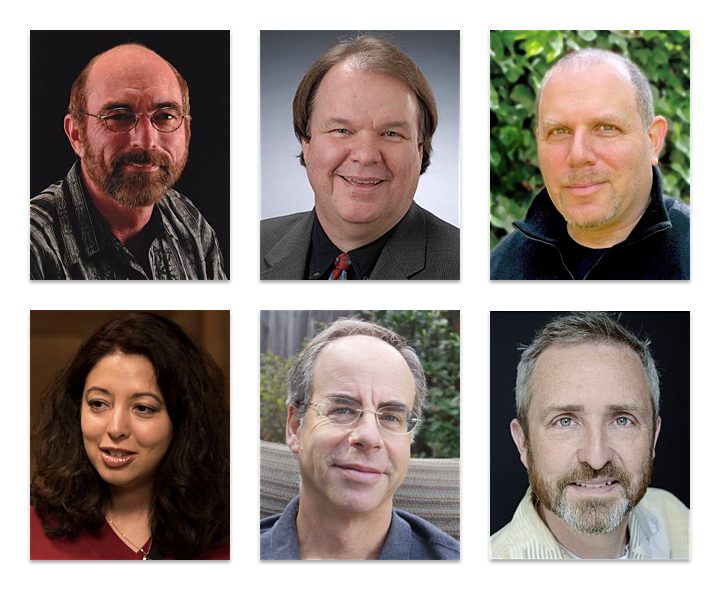
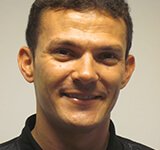
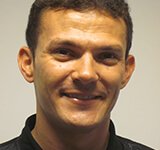 Jose M. Alvarez is a Senior Deep Learning Engineer at NVIDIA working on scaling-up deep learning for autonomous driving. Previously, he was a senior researcher at Toyota Research Institute and at Data61/CSIRO (formerly NICTA) working on deep learning for large scale dynamic scene understanding. Prior to that, he worked as a postdoctoral researcher at New York University under the supervision of Prof. Yann LeCun. He graduated with his Ph.D. from Autonomous University of Barcelona (UAB) in October 2010, with focus on robust road detection under real-world driving conditions. Dr. Alvarez did research stays at the University of Amsterdam (in 2008 and 2009) and the Electronics Research Group at Volkswagen (in 2010) and Boston College. Since 2014, he has served as an associate editor for IEEE Transactions on Intelligent Transportation Systems.
Jose M. Alvarez is a Senior Deep Learning Engineer at NVIDIA working on scaling-up deep learning for autonomous driving. Previously, he was a senior researcher at Toyota Research Institute and at Data61/CSIRO (formerly NICTA) working on deep learning for large scale dynamic scene understanding. Prior to that, he worked as a postdoctoral researcher at New York University under the supervision of Prof. Yann LeCun. He graduated with his Ph.D. from Autonomous University of Barcelona (UAB) in October 2010, with focus on robust road detection under real-world driving conditions. Dr. Alvarez did research stays at the University of Amsterdam (in 2008 and 2009) and the Electronics Research Group at Volkswagen (in 2010) and Boston College. Since 2014, he has served as an associate editor for IEEE Transactions on Intelligent Transportation Systems.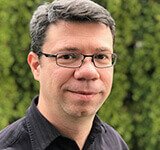 Jose has 20 + years of industry, working at tech giants such as IBM, Microsoft and Uber in areas that range from real-time communications to enterprise security systems. In 2006 he focused his career on Machine Learning, working on content filtering solutions for Family Safety at Microsoft, where he headed the delivery of the first SmartScreen anti-phishing solution for Internet Explorer 7. He later drove the development of paid search relevance models for mobile devices at Bing Ads and worked on applying Machine Learning to geospatial problems at Bing Maps, continuing that work after joining Uber in 2015. In 2017 he joined the
Jose has 20 + years of industry, working at tech giants such as IBM, Microsoft and Uber in areas that range from real-time communications to enterprise security systems. In 2006 he focused his career on Machine Learning, working on content filtering solutions for Family Safety at Microsoft, where he headed the delivery of the first SmartScreen anti-phishing solution for Internet Explorer 7. He later drove the development of paid search relevance models for mobile devices at Bing Ads and worked on applying Machine Learning to geospatial problems at Bing Maps, continuing that work after joining Uber in 2015. In 2017 he joined the 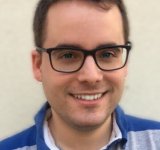 Miguel Ferreira after helping brands, like Ferrero, De Agostini, MindChamps, shape the mobile entertainment space, he is now Senior Software Engineer at CVEDIA, where he pushes the boundaries of real-time rendering, developing sensor models for cutting-edge deep learning applications.
Miguel Ferreira after helping brands, like Ferrero, De Agostini, MindChamps, shape the mobile entertainment space, he is now Senior Software Engineer at CVEDIA, where he pushes the boundaries of real-time rendering, developing sensor models for cutting-edge deep learning applications. 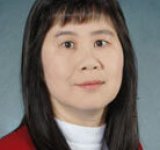 Ming C. Lin is currently the Elizabeth Stevinson Iribe Chair of Computer Science at the University of Maryland College Park and John R. & Louise S. Parker Distinguished Professor Emerita of Computer Science at the University of North Carolina (UNC), Chapel Hill. She is also an honorary Chair Professor (Yangtze Scholar) at Tsinghua University in China. She obtained her B.S., M.S., and Ph.D. in Electrical Engineering and Computer Science from the University of California, Berkeley. She received several honors and awards, including the NSF Young Faculty Career Award in 1995, Honda Research Initiation Award in 1997, UNC/IBM Junior Faculty Development Award in 1999, UNC Hettleman Award for Scholarly Achievements in 2003, Beverly W. Long Distinguished Professorship 2007-2010, Carolina Women’s Center Faculty Scholar in 2008, UNC WOWS Scholar 2009-2011, IEEE VGTC Virtual Reality Technical Achievement Award in 2010, and many best paper awards at international conferences. She is a Fellow of ACM, IEEE, and Eurographics.
Ming C. Lin is currently the Elizabeth Stevinson Iribe Chair of Computer Science at the University of Maryland College Park and John R. & Louise S. Parker Distinguished Professor Emerita of Computer Science at the University of North Carolina (UNC), Chapel Hill. She is also an honorary Chair Professor (Yangtze Scholar) at Tsinghua University in China. She obtained her B.S., M.S., and Ph.D. in Electrical Engineering and Computer Science from the University of California, Berkeley. She received several honors and awards, including the NSF Young Faculty Career Award in 1995, Honda Research Initiation Award in 1997, UNC/IBM Junior Faculty Development Award in 1999, UNC Hettleman Award for Scholarly Achievements in 2003, Beverly W. Long Distinguished Professorship 2007-2010, Carolina Women’s Center Faculty Scholar in 2008, UNC WOWS Scholar 2009-2011, IEEE VGTC Virtual Reality Technical Achievement Award in 2010, and many best paper awards at international conferences. She is a Fellow of ACM, IEEE, and Eurographics. Dinesh Manocha is the Paul Chrisman Iribe Chair in Computer Science & Electrical and Computer Engineering at the
Dinesh Manocha is the Paul Chrisman Iribe Chair in Computer Science & Electrical and Computer Engineering at the 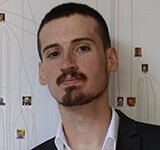 German Ros is a Research Scientist at
German Ros is a Research Scientist at  Philipp Slusallek is Scientific Director at the German Research Center for Artificial Intelligence (DFKI), where he heads the research area on Agents and Simulated Reality. At
Philipp Slusallek is Scientific Director at the German Research Center for Artificial Intelligence (DFKI), where he heads the research area on Agents and Simulated Reality. At 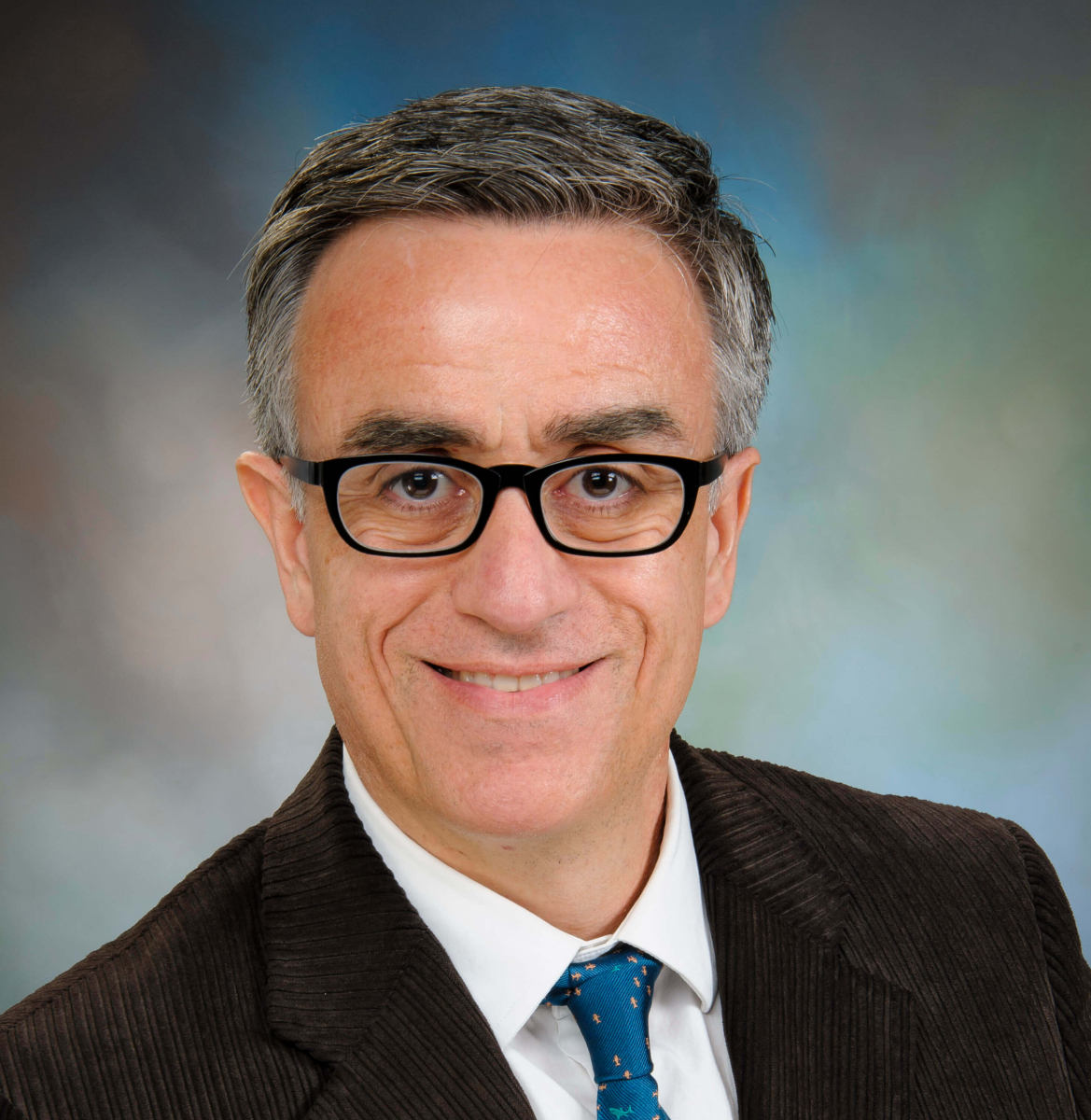 Dr. Barral is the Chair of the Department of Foundational Science at the Kaiser Permanente School of Medicine. In this role, Dr. Barral provides overall leadership for faculty members in this department and oversees education of medical students in the basic biomedical sciences. He collaborates with the Departments of Health Systems Science and Clinical Science on the development of educational activities that incorporate concepts and skills from each of these three major disciplines into the curriculum. Dr. Barral serves as an integral member of the Founding Dean’s leadership team to develop the strategic and tactical plan for implementation of the School.
At the University of Texas Medical Branch Dr. Barral served as tenured Professor and Vice Chair for Operations in the Department of Neuroscience, Cell Biology & Anatomy in the School of Medicine, Senior Associate Dean for Academic Affairs in the Graduate School of Biomedical Sciences, and Director of the MD-PhD Combined Degree Program. Dr. Barral’s commitment to education and research has been recognized by numerous awards and appointments, including the University of Texas Regents’ Outstanding Teaching Award, induction into the University of Texas Kenneth I. Shine, M.D., Academy of Health Science Education, and selection as a Pew Scholar in the Biomedical Sciences.
Dr. Barral obtained his medical degree from the Instituto Tecnológico y de Estudios Superiores de Monterrey in México and his PhD in Biochemistry and Molecular Biology from Baylor College of Medicine in Houston. Subsequently, he performed his post-doctoral studies on in vivo protein folding and molecular chaperones at the Max Planck Institute for Biochemistry in Germany. Dr. Barral’s work has been published in prestigious journals, including Nature, Science and Cell.
Sam Glassenberg
Dr. Barral is the Chair of the Department of Foundational Science at the Kaiser Permanente School of Medicine. In this role, Dr. Barral provides overall leadership for faculty members in this department and oversees education of medical students in the basic biomedical sciences. He collaborates with the Departments of Health Systems Science and Clinical Science on the development of educational activities that incorporate concepts and skills from each of these three major disciplines into the curriculum. Dr. Barral serves as an integral member of the Founding Dean’s leadership team to develop the strategic and tactical plan for implementation of the School.
At the University of Texas Medical Branch Dr. Barral served as tenured Professor and Vice Chair for Operations in the Department of Neuroscience, Cell Biology & Anatomy in the School of Medicine, Senior Associate Dean for Academic Affairs in the Graduate School of Biomedical Sciences, and Director of the MD-PhD Combined Degree Program. Dr. Barral’s commitment to education and research has been recognized by numerous awards and appointments, including the University of Texas Regents’ Outstanding Teaching Award, induction into the University of Texas Kenneth I. Shine, M.D., Academy of Health Science Education, and selection as a Pew Scholar in the Biomedical Sciences.
Dr. Barral obtained his medical degree from the Instituto Tecnológico y de Estudios Superiores de Monterrey in México and his PhD in Biochemistry and Molecular Biology from Baylor College of Medicine in Houston. Subsequently, he performed his post-doctoral studies on in vivo protein folding and molecular chaperones at the Max Planck Institute for Biochemistry in Germany. Dr. Barral’s work has been published in prestigious journals, including Nature, Science and Cell.
Sam Glassenberg
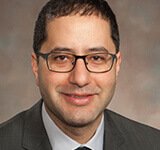 Christopher Khoury is vice president of the environmental intelligence unit at the American Medical Association (AMA). The unit focuses on assessing and interacting with emerging elements across health care, business and policy sectors. He also leads collaborations, strategic partnerships and core innovation initiatives at the AMA.
He has worked in the healthcare sector for 17 years. Prior to joining AMA, he was senior manager at PwC’s Health Research Institute (HRI), where he developed thought leadership and provided strategic guidance to clients on biopharmaceuticals, life sciences, health reform, and consumer issues. He began his career in medical device R&D and product development, and subsequently in health data analytics at an academic medical center.
Christopher is the author of several publications and a frequent presenter on business issues across healthcare. He also holds patents covering biotechnology subjects. He earned an M.B.A. from The Ohio State University Fisher College of Business magna cum laude. Christopher received his B.S. from the University of Illinois and holds an M.S. in biomedical engineering from the University of Wisconsin.
Abner Mason
Christopher Khoury is vice president of the environmental intelligence unit at the American Medical Association (AMA). The unit focuses on assessing and interacting with emerging elements across health care, business and policy sectors. He also leads collaborations, strategic partnerships and core innovation initiatives at the AMA.
He has worked in the healthcare sector for 17 years. Prior to joining AMA, he was senior manager at PwC’s Health Research Institute (HRI), where he developed thought leadership and provided strategic guidance to clients on biopharmaceuticals, life sciences, health reform, and consumer issues. He began his career in medical device R&D and product development, and subsequently in health data analytics at an academic medical center.
Christopher is the author of several publications and a frequent presenter on business issues across healthcare. He also holds patents covering biotechnology subjects. He earned an M.B.A. from The Ohio State University Fisher College of Business magna cum laude. Christopher received his B.S. from the University of Illinois and holds an M.S. in biomedical engineering from the University of Wisconsin.
Abner Mason
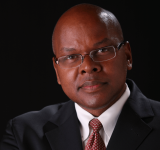 Abner Mason is the Founder and CEO of
Abner Mason is the Founder and CEO of  Patrick Wayte is Senior Vice President of the AHA’s Center for Health Technology and Innovation. In this role he leads integrated digital health initiatives across the health continuum – with a focus on secondary prevention, healthcare transition,
Patrick Wayte is Senior Vice President of the AHA’s Center for Health Technology and Innovation. In this role he leads integrated digital health initiatives across the health continuum – with a focus on secondary prevention, healthcare transition,